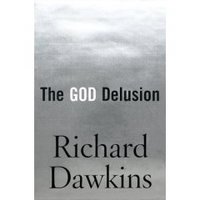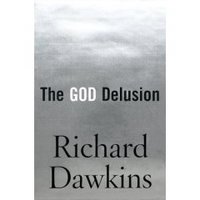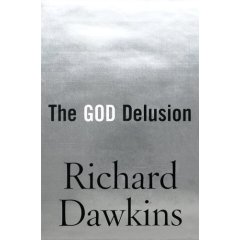
Here are some of my thoughts on Dawkins' section "The Argument from Scripture."
1. Dawkins writes: "The historical evidence that Jesus claimed any sort of divine status is minimal... There is no good historical evidence that he ever thought he was divine."
But says who... Richard Dawkins? Dawkins provides not support for this. He should either engage the scholarship on this or say nothing. As H. Allen Orr says, this is "just Dawkins talking." And talking about things he knows next to nothing about. Why should we listen when he speaks on the divinity of Jesus?
For examples of scholars who argue that there is historical evidence that Jesus thought he was divine, see
here. See some excellent essays by N. T. Wright on Jesus
here. See especially
"Jesus and the Identity of God."
2. Dawkins writes: "The fact that something is written down is persuasive to people not used to asking questions like: 'Who wrote it, and when?' 'How did they know what to write?' 'Did they, in their time, really mean what we, in our time, understand them to be saying?' Were they unbiased observers, or did they have an agenda that coloured their 'writing?'
Dawkins needs to study contemporary hermeneutical theory. There are NO "unbiased observers," anywhere, any time. There is a very big world of hermeneutical theory out there that seeks to understand the "problem of intepretation" as due to the bias, or "prejudice" (pre-judgment; see Gadamer) of the interpreter. So to want, e.g., Matthew, Mark, Luke and John to be "unbiased observers" is fundamentally misguided.
Dawkins himself is a biased observer, as we all are.
3. "Ever since the nineteenth century, scholarly theologians have made an overwhelming case that the gospels are not reliable accounts of what happened in the history of the real world."
It is true that certain nineteenth century theologians "demythologized" the Bible. But these theologians, Bultmann being one of them, were themselves under the spell of an Enlghtenment philosophical worldview. This strikes me as mostly the preconscious paradigm Dawkins dwells in.
4. Dawkins writes that biblical scholar Bart Ehrman "unfolds the huge uncertainty befogging the New Testament texts."
Please note that not all agree with Ehrman's work. For one very good example see
here.
See the debate between Ehrman and William Lane Craig
here.
The point is that there is a serious scholarly discussion going on, which Dawkins gives only one side of, and that very briefly.
5. "It is possible to mount a serious, though not widely supported, historical case that Jesus never lived at all." Dawkins goes on to say that "Jesus probably existed." Some thoughts:
Why are we listening to anything Richard Dawkins has to say on the historical existence of Jesus?
Greg Boyd and Paul Eddy have just written the forthcoming book The Jesus Legend:
A Case for the Historical Reliability of the Synoptic Jesus Tradition (Baker, 2007). From Greg's newsletter we read: "This massive scholarly work (its close to 500 pages) explores, and ultimately refutes, every possible academic argument that attempts to show Jesus as a legendary figure. The most groundbreaking aspect of this book is the extensive use Greg and Paul make of recent anthropological discoveries concerning the reliability of oral traditions in non-literate cultures. They use this material to
argue that the oral traditions that preceded the writings of the Gospels would have resisted legendary accretions. Look for it this coming August. It will be followed several months later by another work titled Jesus: Lord or Legend? (Baker, 2007), also published by Greg and Paul. This book will in essence be a much shorter and less academic version of The Jesus Legend."
6. Dawkins main example which, he thinks, debunks the biblical story of Jesus, is the differing gospel accounts of the birth of Jesus. My next GD post will directly address Dawkins' argument about this.












































